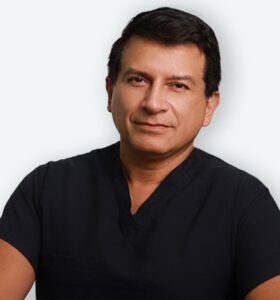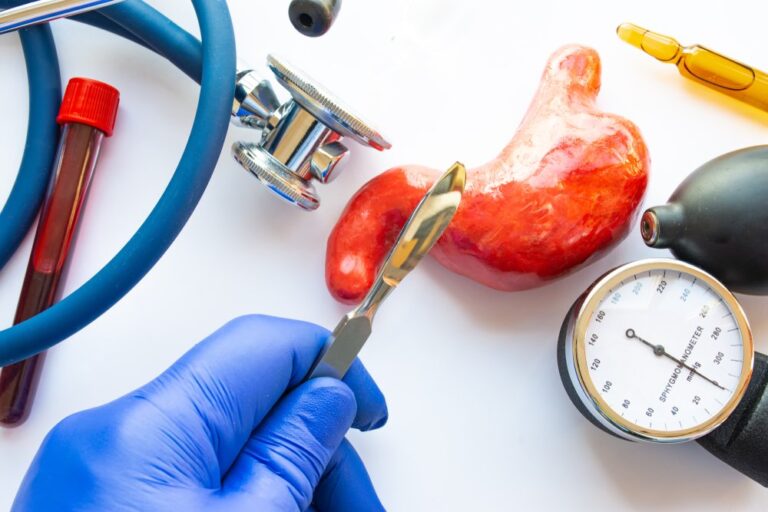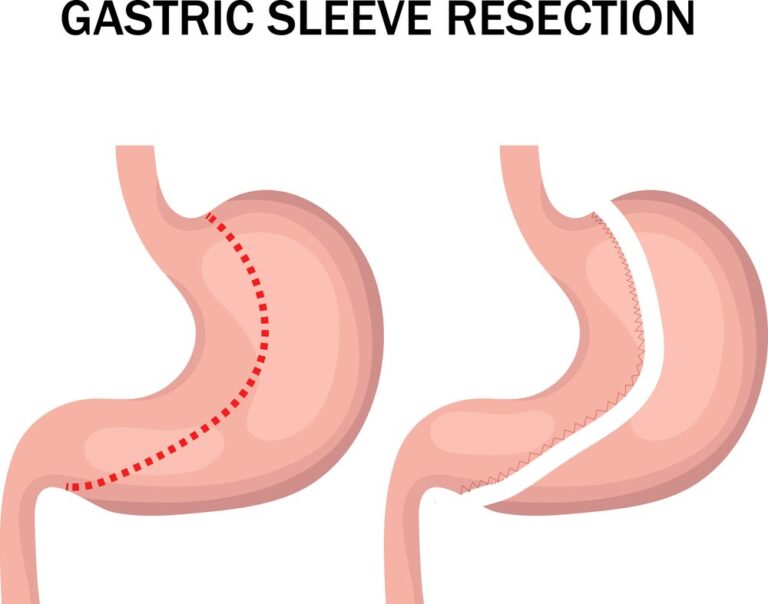After gastric sleeve surgery, it is essential to be cautious when taking any medication, including allergy medicine. What allergy medicine can I take after gastric sleeve surgery? It is always recommended to consult with your healthcare provider or surgeon before starting any new medication. They can provide personalized advice based on your specific needs and medical history.
Get a $1000 Off on Gastric Sleeve in Miami
Tips for Selecting Allergy Medicine After Gastric Sleeve Surgery
Selecting the right allergy medicine after gastric sleeve surgery is important to manage your allergies effectively while considering the unique needs of your post-surgery body. Here are some tips to help you make informed choices:
- Consult with Your Healthcare Provider: Before starting any allergy medicine, consult with your healthcare provider or surgeon. They can provide personalized advice based on your specific needs, medical history, and potential interactions with other medications.
- Choose Non-Drowsy Formulations: Opt for non-drowsy allergy medicines to avoid excessive sleepiness or drowsiness, which can impact your daily activities. Look for products labeled as “non-drowsy” or “24-hour relief” on the packaging.
- Avoid NSAIDs: Non-Steroidal Anti-Inflammatory Drugs (NSAIDs) such as ibuprofen and aspirin can irritate the stomach lining and may not be recommended after gastric sleeve surgery. It’s generally best to avoid NSAIDs for allergy relief. Instead, consider alternative options that are gentle on the stomach.
- Consider Antihistamines: Antihistamines are commonly used to treat allergy symptoms. Choose antihistamines that are safe for your post-surgery condition. Look for non-drowsy antihistamines such as cetirizine (Zyrtec), loratadine (Claritin), or fexofenadine (Allegra).
- Read Labels Carefully: When selecting over-the-counter allergy medicines, carefully read the labels for any warnings or precautions. Look for specific information regarding suitability for individuals who have undergone gastric sleeve surgery.
- Liquid Formulations: Consider liquid formulations of allergy medicine, as they are generally easier to swallow and digest after surgery. Liquid forms may be more gentle on the stomach and may provide better absorption.
- Avoid Combination Products: Be cautious with combination allergy medications that contain multiple active ingredients. These products may include unnecessary ingredients or higher doses of medications that may not be suitable for your post-surgery condition. It’s best to select single-ingredient medications or consult with your healthcare provider for specific recommendations.
- Consider Nasal Sprays or Eye Drops: If your allergy symptoms primarily affect your nasal passages or eyes, nasal sprays or eye drops may provide targeted relief. These products are often applied locally and may have a lower risk of systemic side effects.
Remember, always consult with your healthcare provider or surgeon before starting any new allergy medicine. They can guide you on the best options based on your individual needs and ensure compatibility with your post-surgery recovery.

Allergy Medication Options for Gastric Sleeve Patients
Allergy medication options for gastric sleeve patients may vary based on individual needs and medical history. It is important to consult with your healthcare provider or surgeon before starting any new medication. They can provide personalized recommendations based on your specific circumstances. Here are some common allergy medication options that may be suitable for gastric sleeve patients:
- Non-Sedating Antihistamines: Non-sedating antihistamines are commonly used to relieve allergy symptoms such as sneezing, itching, and runny nose. These medications have a lower risk of causing drowsiness compared to older antihistamines. Examples include cetirizine (Zyrtec), loratadine (Claritin), and fexofenadine (Allegra).
- Nasal Corticosteroids: Nasal corticosteroid sprays are effective for managing nasal congestion, itching, and inflammation associated with allergies. They work by reducing swelling in the nasal passages. Common options include fluticasone (Flonase), mometasone (Nasonex), and budesonide (Rhinocort).
- Leukotriene Inhibitors: Leukotriene inhibitors are oral medications that help alleviate allergy symptoms by blocking the actions of certain chemicals in the body. Montelukast (Singulair) is a commonly used leukotriene inhibitor for allergy relief.
- Decongestants: Decongestants can provide temporary relief from nasal congestion associated with allergies. However, gastric sleeve patients should exercise caution with decongestants, as they can increase heart rate and blood pressure. Consult with your healthcare provider before using decongestants to ensure they are safe for you.
- Saline Nasal Sprays: Saline nasal sprays can help alleviate nasal congestion and dryness by moisturizing the nasal passages. They are a safe option for gastric sleeve patients and can be used as adjunct therapy alongside other allergy medications.
- Eye Drops: Antihistamine eye drops or mast cell stabilizers can provide relief from itchy, watery eyes caused by allergies. These can be used as directed and are typically safe for gastric sleeve patients.
It’s important to note that these are general recommendations, and individual needs may vary. Your healthcare provider will consider your specific health condition, medication interactions, and allergies before recommending the most appropriate allergy medication for you. Always follow their guidance and instructions for proper usage and dosage.
Get a $1000 Off on Gastric Bypass Surgery Miami
Importance of Consulting Your Healthcare Provider for Medication Guidance
| Importance of Consulting Your Healthcare Provider for Medication Guidance |
|---|
| Individualized Recommendations |
| – Your healthcare provider can provide personalized recommendations based on your unique medical history, condition, and needs. |
| Post-Surgery Considerations |
| – They understand the specific considerations and potential effects of medications after gastric sleeve surgery. |
| – They can guide you on medications that are gentle on your stomach and less likely to cause complications. |
| Avoiding Potential Risks and Interactions |
| – Your healthcare provider considers possible risks, contraindications, and interactions with your post-surgery condition or other medications. |
| – They help minimize risks and ensure your safety. |
| Optimal Dosage and Administration |
| – They determine appropriate medication dosage and administration methods to achieve optimal therapeutic effects. |
| – Adjustments may be made to accommodate changes in absorption and metabolism after surgery. |
| Monitoring and Follow-Up |
| – Regular follow-up appointments allow for monitoring of progress, assessing medication efficacy, and addressing concerns or side effects. |
| – Medication regimens can be adjusted as needed for optimal recovery and management of complications. |
| Comprehensive Care |
| – Consulting with your healthcare provider ensures a comprehensive approach to your healthcare, integrating medication management with other aspects of post-surgery care. |
| – They can provide guidance on dietary recommendations, physical activity, and overall wellness strategies. |
Please remember that this table provides a general overview, and it is essential to consult with your specific healthcare provider for personalized advice and guidance regarding your medication needs after gastric sleeve surgery.
Non-Drowsy Antihistamines for Allergy Relief
Non-drowsy antihistamines are a popular choice for allergy relief as they effectively alleviate symptoms without causing excessive sleepiness or drowsiness. These medications work by blocking the effects of histamine, a substance released by the body during an allergic reaction. Here are some commonly used non-drowsy antihistamines for allergy relief:
- Cetirizine (Zyrtec): Cetirizine is an effective non-drowsy antihistamine that provides relief from symptoms such as sneezing, runny nose, itching, and watery eyes. It is available over-the-counter and in prescription strength.
- Loratadine (Claritin): Loratadine is another widely used non-drowsy antihistamine that provides relief from allergic symptoms. It is available over-the-counter and is well-tolerated by most individuals.
- Fexofenadine (Allegra): Fexofenadine is a non-drowsy antihistamine that offers effective relief from allergy symptoms. It is available over-the-counter and by prescription.
- Desloratadine (Clarinex): Desloratadine is a non-drowsy antihistamine that provides relief from seasonal and year-round allergies. It is available by prescription.
These non-drowsy antihistamines are generally safe for gastric sleeve patients when taken as directed. However, it is important to consult with your healthcare provider or pharmacist before starting any new medication, especially after gastric sleeve surgery, to ensure they are suitable for you and do not interact with other medications you may be taking. Your healthcare provider can provide personalized recommendations based on your specific needs and medical history.

Nasal Steroids for Allergic Rhinitis Treatment
Nasal steroids are a commonly prescribed treatment for allergic rhinitis, a condition characterized by inflammation and irritation of the nasal passages due to allergies. These medications are available in nasal spray form and are highly effective in reducing nasal congestion, sneezing, itching, and runny nose. Here are some commonly used nasal steroids for allergic rhinitis treatment:
- Fluticasone Propionate (Flonase): Fluticasone propionate is a widely used nasal steroid that provides long-lasting relief from allergy symptoms. It helps reduce inflammation in the nasal passages and is available over-the-counter and by prescription.
- Mometasone Furoate (Nasonex): Mometasone furoate nasal spray is another effective nasal steroid that alleviates symptoms of allergic rhinitis. It reduces inflammation and provides relief from nasal congestion, sneezing, and itching. It is available by prescription.
- Budesonide (Rhinocort): Budesonide nasal spray is a nasal steroid that helps reduce inflammation in the nasal passages, relieving symptoms of allergic rhinitis. It is available over-the-counter and by prescription.
- Fluticasone Furoate (Veramyst): Fluticasone furoate is a nasal steroid that provides relief from nasal symptoms caused by allergies. It is available by prescription.
Nasal steroids are generally safe and well-tolerated when used as directed. However, it is important to consult with your healthcare provider before starting any new medication, including nasal steroids, to ensure they are suitable for you and do not interact with other medications you may be taking. Your healthcare provider can provide personalized recommendations based on your specific needs and medical history.
References
- Cleveland Clinic. (2023). Gastric sleeve surgery. Retrieved May 17, 2023, from https://my.clevelandclinic.org/health/treatments/22931-gastric-sleeve-surgery
- UCLA Health. (2023). Gastric Sleeve. Retrieved May 17, 2023, from https://www.uclahealth.org/medical-services/surgery/bariatrics/gastric-sleeve
- WebMD. (2023). What is gastric sleeve weight loss surgery? Retrieved May 17, 2023, from https://www.webmd.com/obesity/what-is-gastric-sleeve-weight-loss-surgery






